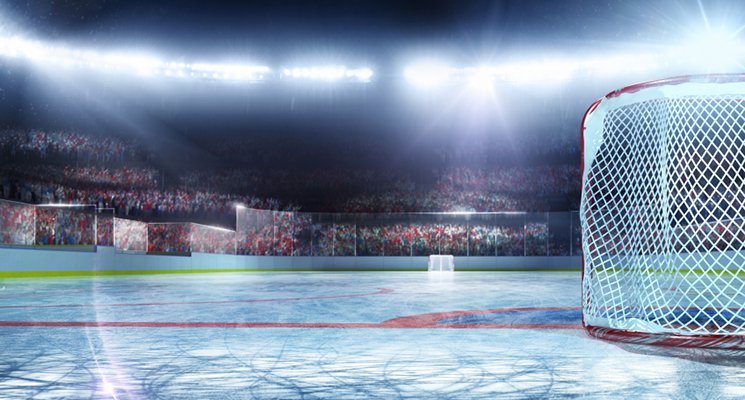You run an ice rink, a stadium, or some other kind of sports arena, and you’re still using metal halide light fixtures? You have no idea what you have been missing.
Athletic Business, a print and online resource for thousands of sports industry professionals, recently ran an impressive story about the War Memorial Arena, a rink in Syracuse, New York. It is the home of the American Hockey League’s Syracuse Crunch. In 2012, the arena switched its metal halide light fixtures, which had been in place since the facility’s inception in 1951, for LED lights specifically designed for sports applications. The effects were immediate and astounding. First of all, the amount of light hitting the ice during games improved from an average of 105 foot-candles to 217 foot-candles. Simply put, spectators could see the game better. What’s more, the new LED lights have many more functions than the old lights: They can be programmed for effects during pregame introductions. The goalie can be isolated in light. Lights can be made to zoom around the facility. And, just for fun, the lights can turn the ice the exact same shade of blue as the team’s jerseys. As Howard Dolgon, Syracuse Crunch owner told Athletic Business, “The lights give us the ability to do things we couldn’t do before. They’ve become a promotional tool for us.”
But get ready for the best part: The lights save a ton of energy and money. The old metal halide fixtures consumed 263,000 kilowatts of power annually. The new LED ones? During the 2012-2013 season, the power draw was reduced by 87 percent to 32,000 kilowatts. The savings is huge.
Sure, you’ll put a decent-sized capital investment down in order to get an LED lighting system in place, but the savings you’ll reap makes such an investment well worth it. At Weber State University’s Dee Events Center basketball arena in Ogden, Utah, the conversion of metal halide lighting to LED lighting cost about $200,000 (minus $156,000 thanks to utility company incentives). But the arena’s energy consumption has been cut by 70 percent, saving the university $25,000 a year. In addition, because each LED light’s estimated lifespan is 150,000 to 160,000 hours, annual lamp replacement has been eliminated—for the Dee Events Center, that means a good 30 years of usage for each bulb. Jake Cain, the energy and sustainability manager at the university explained it this way to Athletic Business: “I did some different analyses on how this project panned out. If I did purely just the energy savings, it was about an eight-year ROI. If I threw in energy and maintenance, it was like five. If I threw in the utility incentive, now I’m down to about a one- to two-year range for it to pay for itself.”
Within the American Hockey League, LED lighting is gradually becoming the standards. Teams in several cities in addition to Syracuse have made the switch. The same thing is happening at arenas designed for other types of sports as well. There are just so many benefits accruing from LED lighting, that everyone is eager to get in on the great investment. If you haven’t started investigating options for your sports facility, now is the time to begin. Light up your business in a whole new way.

Your Sports Facility Needs LED Lighting Right Now
« Blog | | | (0) Comments